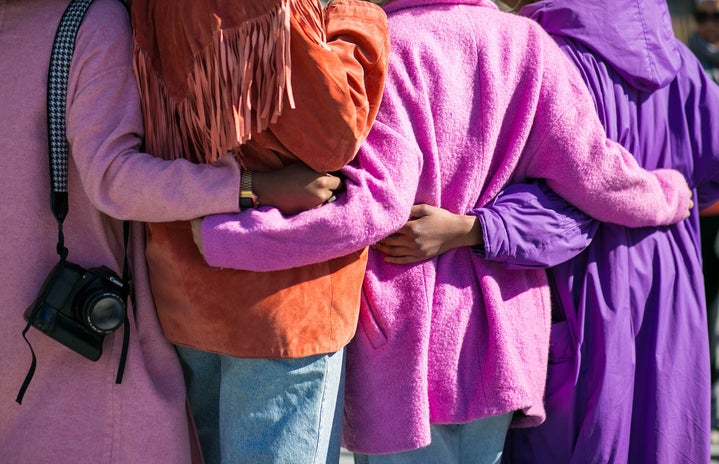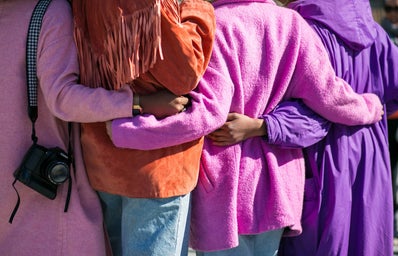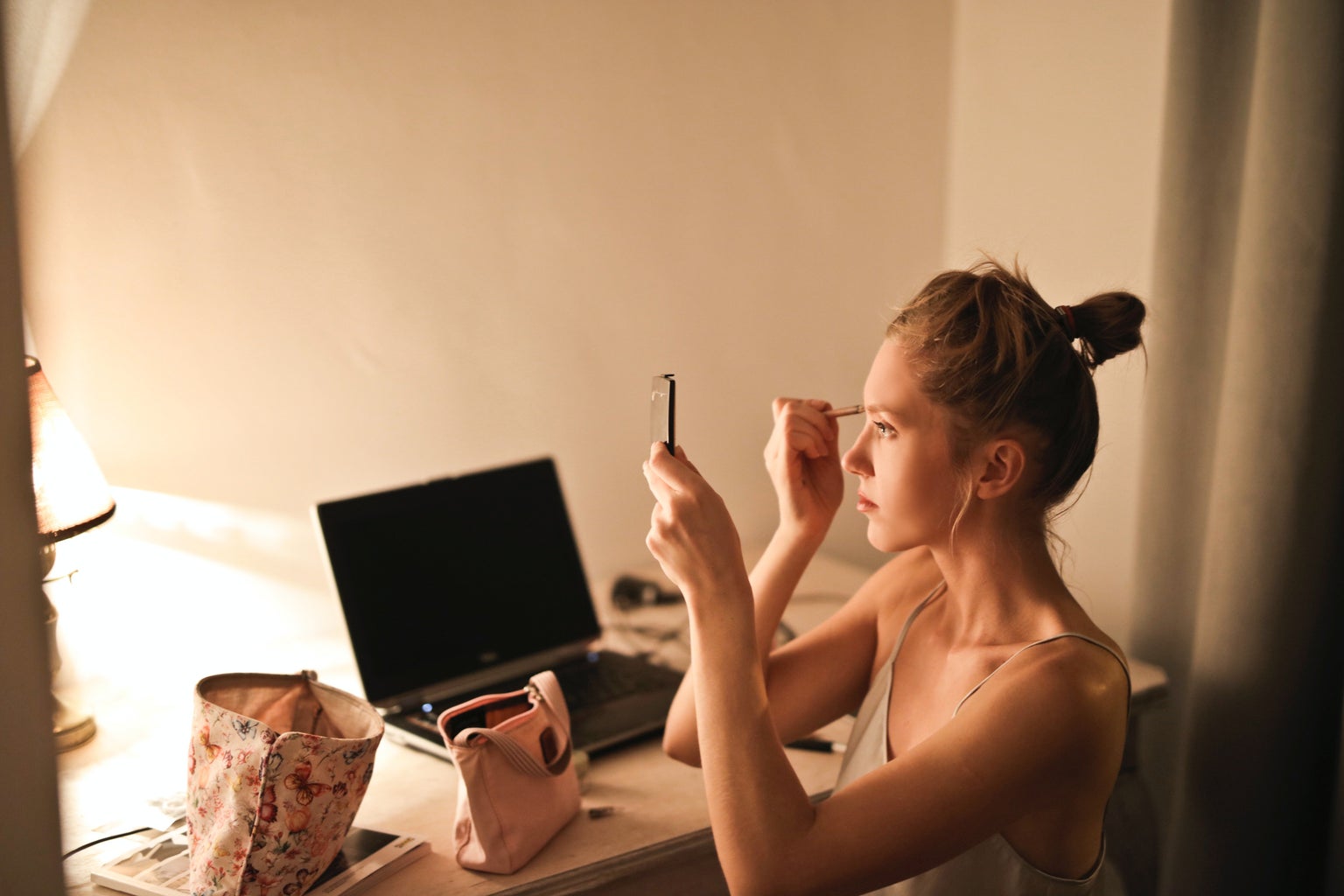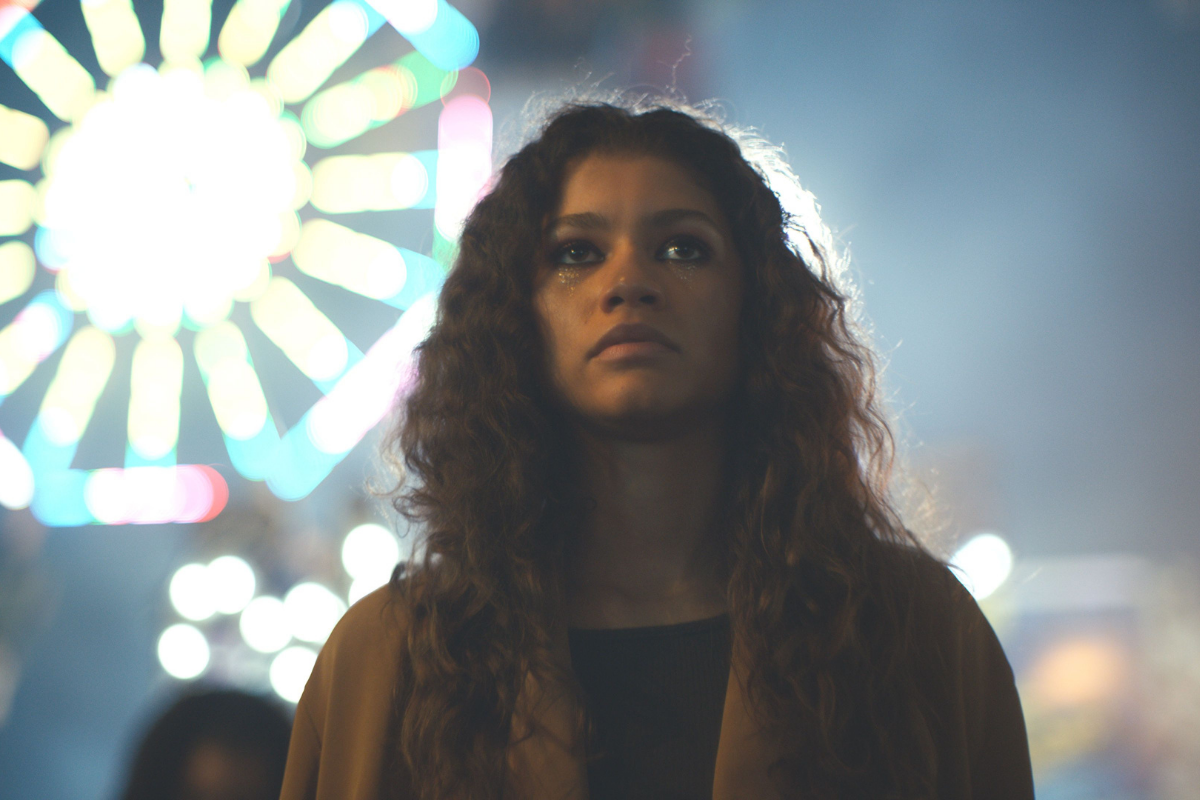*slight spoilers for season 2, episode 3 of HBO’s Euphoria “Ruminations: Big & Little Bullies”*
The male gaze is seemingly inescapable. Every time I watch a movie or a tv show, I can’t help but notice how the camera seems to linger over the bodies of female characters for an uncomfortable period of time or how the camera slowly pans up to showcase their bodies, purposely stopping below their head. Feminist film theorist and coiner of the term “male gaze” Laura Mulvey defines this act as reducing female characters to passive or sexual objects of male desire, whether it be in cinema or literature, from the perspective of a heterosexual man. In her essay “Visual Pleasure and Narrative Cinema”, Mulvey further describes the minimized role of women trapped within the male gaze:
“Traditionally, the woman displayed has functioned on two levels: as erotic object for the characters within the screen story, and as erotic object for the spectator within the auditorium.”
An example of cinema that fits within this notion that immediately comes to mind is the infamous scene of Megan Fox in Transformers (2007), in which the camera is lingering on the exposed skin of her midriff for far longer than necessary for male audience members to gawk at.
This act may seem to exclusively exist within the bounds of media and fiction but upon seeing a particular scene in Season 2, Episode 3 of HBO’s hard-hitting and graphic show Euphoria, I realized that art may be imitating reality. In the midst of the episode’s usual teenage angst and depiction of heavy drug use, one of the main characters, Cassie, obsessively changes her appearance to appeal to her best friend’s ex-boyfriend, Nate. Throughout her montage of multiple outfit changes, she desperately looks towards Nate for his attention who would instead ignore her.
It was within this hyper-realistic montage of manic self-care and her need for Nate’s validation that I slowly realized that I was like Cassie. I subconsciously dressed myself in ways that would appeal to some imagined male audience. Even aspects of my personality, the hobbies I pursued, the music I listened to, and the shows I watched were all decisions that would fall in line with what would please men. I would always subconsciously overanalyze my actions and wonder how men would perceive me as I walked down the street or sat alone in a coffee shop. It honestly sickened me with how much I subconsciously relied on male attention.
I couldn’t help but question my identity. I felt like a hypocrite to call myself a feminist while simultaneously giving in to the patriarchy by dressing in ways that would appeal to the male masses. Was I even living for myself and being true to who I was? Or was I carefully constructed amalgamation of everything that men would desire?
Author Margaret Atwood perfectly describes this conflict of the internalized male gaze in her novel The Robber Bride:
“Male fantasies, male fantasies, is everything run by male fantasies? Up on a pedestal or down on your knees, it’s all a male fantasy…Even pretending you aren’t catering to male fantasies is a male fantasy…You are a woman with a man inside watching a woman. You are your own voyeur.”
This scene drove me to confront my internalized male gaze and realize how easy it is to fall into this idea of dressing to appeal to men. To combat this problem I had to teach myself how to reject my internalized male gaze and unsubscribe from this rhetoric of pleasing a male audience. I trained myself to recognize the male gaze in the world around me outside of the world of cinema, such as in advertisements, conversations, and social media. I’m still in the hard process of unlearning much of the ingrained habits I created with my internalized male gaze, but it’s necessary for me to grow as an individual.
This Womxn’s History Month, let’s start shining a spotlight on this issue and start speaking openly about the impacts of the male gaze. By sharing our experiences as womxn we can find solidarity with each other and realize that we are all in this together.




